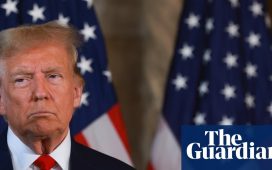Similar to the hype surrounding the release last year of Crazy Rich Asians, the first Hollywood romcom to feature an all-Asian cast, Lulu Wang’s The Farewell, made for a far more modest $3m, has also generated a great wave of goodwill since its premiere at Sundance in January. The Farewell is a welcome addition to a new canon that depicts the contemporary Asian-American experience. As a mixed-race woman who was not born or raised in her parents’ home country/culture, I found the depiction of the complex east-west family dynamics highly resonant, particularly around the themes of belonging and not belonging. I also shed quite a few tears in the process.
The Farewell reaches cinemas as the US-China trade war continues to send shockwaves through the global economy; it is far more political than I could have imagined. Starring Crazy Rich Asians alum Awkwafina as Billi, a Chinese-American woman who discovers her grandmother, or nai nai in Mandarin, has terminal lung cancer and has only a few months left to live. However, her family have wrongly – in Billi’s opinion – withheld the truth from her grandmother: a common practice in China, as well as in Japan and Singapore. In an attempt to reconcile their so-called “emotional burden”, the family travel to Nai Nai’s home in Changchun, the capital of north-east Jilin province, to stage a fake wedding between her cousin and his Japanese girlfriend so that the entire extended family can bid Nai-Nai a final farewell.
The setup may seem outlandish, but it is based on Wang’s own family history. “Based on an actual lie” reads an epigraph on screen at the start of the film.
The family’s decision to tell a “good lie” is a metaphor for the collective delusion of living under the Chinese Communist party. Billi’s guilt at harbouring this secret is beautifully reflected in the plastic-facade setting of Changchun – the seedy hotels, outdated banqueting halls and concrete tower blocks built next to smoggy highways suggests this “performance” will eventually eat away at one’s soul.
The Farewell is a co-production with Chinese film companies, meaning it avoids the country’s strict foreign-film quota and will be eligible for distribution in China. Cinema has become a key battleground in the trade war between the US and China; as reported by Variety, Chinese film officials have begun to advise Chinese buyers against purchasing Hollywood titles. Recently, Hollywood has been seen to appease state censorship by removing the Taiwanese and Japanese flags from Tom Cruise’s jacket for the sequel of Top Gun (a film partly funded by Chinese corporate monolith TenCent, the company behind WeChat). Meanwhile, the support for Hong Kong police brutality expressed by naturalised American citizen Crystal Liu – star of Disney’s forthcoming Mulan – has prompted a #boycottmulan backlash.
The big-budget Crazy Rich Asians, which was a tour through the lives of the rich in Singapore, bombed at the Chinese box office, and it has been suggested this was partly because the protagonist Rachel was seen as a “race traitor”. But The Farewell, which was shot primarily in Changchun – home to one of China’s largest film production bases and a magnet for international students – offers an ideal opportunity to discuss issues surrounding China’s generational divide, its slowing economy, the one-China policy, and its future as a superpower.
However, to anyone who has lived the immigrant experience after their family were forced to flee during the Cultural Revolution, the “performance” of Chinese society – embodied by lying to the grandmother, and the scathing commentary on hypocritical traditions (such as paying for mourners to cry at funerals) – rings sadly true. Critics have noted the film’s importance in the depiction of what immigrants leave behind. But, in depicting the differences between western and Chinese family values, Wang has highlighted the ideological battle between China and the US. The Farewell might be the spark that Hollywood needs to reignite its dwindling relationship with China and, in turn, China’s with the rest of the world.







